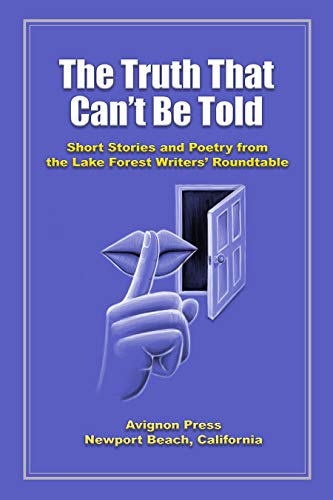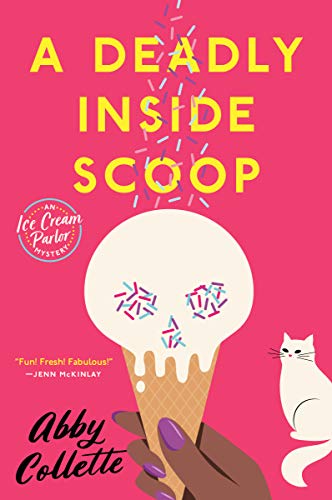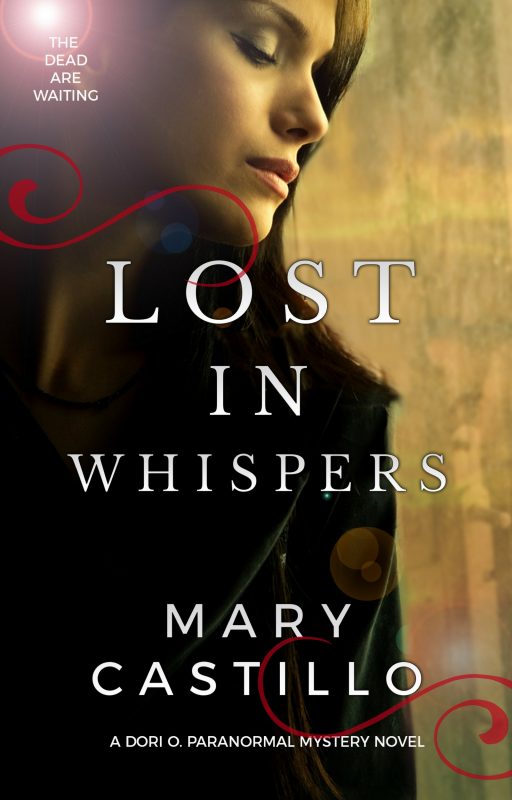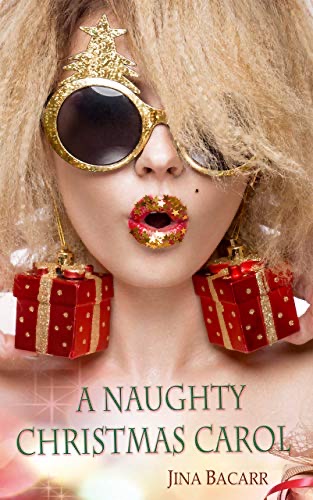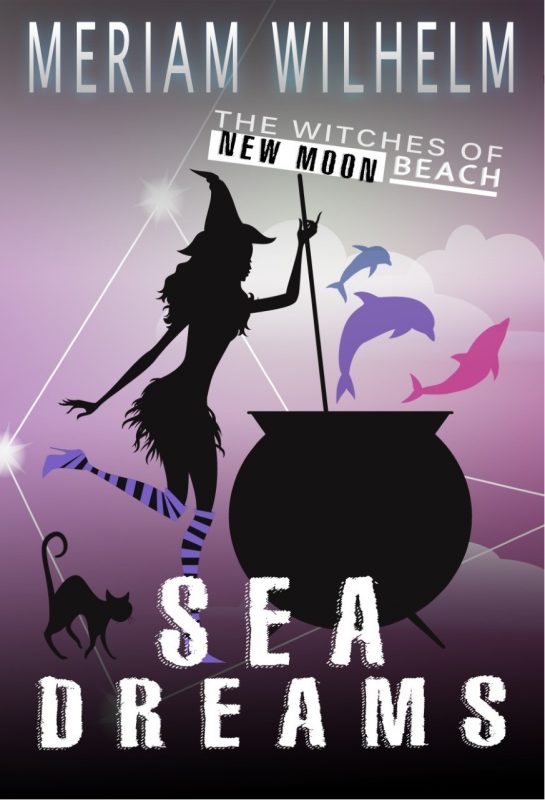Now & Then: An Author Looks Back
March 15, 2018 by Rebecca Forster in category The Write Way by Maureen Child, Writing tagged as author, Craft, history, inspiration, writing I am updating my early romances and contemporary women’s fiction novels with the intention of re-releasing them. I am excited because these books were my training ground. In these pages I can hear the first tentative sounds of my distinct ‘author’s voice’. I see that I instinctively had a good grasp of what makes a story work (don’t all voracious readers have that instinct?). There is one more thing I see in these books that is hard to embrace: my major author ‘dork’. I have no other word for my early writing stumbles. Some of them were mistakes of publishing fashion and others were born from an untrained sense of drama.
I am updating my early romances and contemporary women’s fiction novels with the intention of re-releasing them. I am excited because these books were my training ground. In these pages I can hear the first tentative sounds of my distinct ‘author’s voice’. I see that I instinctively had a good grasp of what makes a story work (don’t all voracious readers have that instinct?). There is one more thing I see in these books that is hard to embrace: my major author ‘dork’. I have no other word for my early writing stumbles. Some of them were mistakes of publishing fashion and others were born from an untrained sense of drama.
Since hindsight is a wonderful thing, I thought I’d share my top three ‘author dork’ mistakes.
1) Hysterical dialogue: This is not an industry term so don’t use it with an editor. Sill, I think it perfectly describes my use of long sentences, harsh words, and huge banks of exclamation points to get across a character’s anger, distress, fear and passion.
Solution: In my later work, I learned that proper scene set-up, thoughtful exposition, and spare and realistic dialogue give me a lot more dramatic punch.
2) Fad over fashion: Within the first few pages of Seasons (a book I really love) my heroine appears in Laura Ashley dress. If you’re old enough to know who Laura Ashley is, you’re cringing at the image. If you’re not old enough to know then I have made you stumble as you try to figure it out. I have no doubt I will also run across references to big shoulder pads and power suits.
Solution: I now describe clothing generally – jeans, slacks, blazer, leather jacket – to allow the reader to fill in the detail blanks. I use color to underscore character. I never use a designer name or a fad because this dates a book. The only exception is when I need the fad to assist in a plot point. For instance, a label in a corpse’s clothing might call out a specific designer.
3) Overwriting: When I first started writing there seemed to be an accepted rule of thumb that a chapter was twenty pages, that women’s fiction and romance were not worthy unless the author lingered over love scenes and dialogue was drawn out. If there is purpose to long stretches of prose or dialogue then go for it, but if during the edit the author can’t remember what happened in the last three pages of a book then the reader won’t remember either.
Solution: Tell the story. Do not write to word length. Either the story is solid and will move along at a good clip or it won’t, either it will be 100,000 words or it won’t. The readers won’t stick with you.
The good news is that I am happy with these early books and will not fundamentally change them. I will, however, make them better by applying what I know now to what I wrote then. If only we could do the same thing with our high school yearbook pictures the world would be perfect!
Happy writing.
 Don’t forget to check out my latest release, Secret Relations, book 3 in the Finn O’Brien Thriller Series.
Don’t forget to check out my latest release, Secret Relations, book 3 in the Finn O’Brien Thriller Series.
Here’s where you can find me!
Website: http://rebeccaforster.com
Facebook:
Personal: https://www.facebook.com/rebeccaforster
Author page: https://www.facebook.com/RebeccaForster4/
Twitter: @Rebecca_Forster
Instagram: https://www.instagram.com/rebeccaforster1211/
Subscribe to my newsletter and get my 2-book starter library:
Taking Notes on Your Kindle – and Finding Them Again by Kitty Bucholtz
February 9, 2018 by Kitty Bucholtz in category It's Worth It by Kitty Bucholtz, Writing tagged as Amazon Kindle, editing, It's Worth It, Kitty Bucholtz, organization, Self-editing In November 2017, I wrote about how you can send nearly any kind of text-based document to your Kindle. A couple weeks ago, a friend told me she’s taking an overseas trip and she was considering printing out her current work-in-progress so she can at least get some editing done on the plane. I suggested she send her Word doc to her Kindle instead. She wouldn’t have to worry about losing pages, and her luggage would be a little lighter.
In November 2017, I wrote about how you can send nearly any kind of text-based document to your Kindle. A couple weeks ago, a friend told me she’s taking an overseas trip and she was considering printing out her current work-in-progress so she can at least get some editing done on the plane. I suggested she send her Word doc to her Kindle instead. She wouldn’t have to worry about losing pages, and her luggage would be a little lighter.
When she asked me how she would do edits, I realized I haven’t actually written an article about that yet! Here are my thoughts.
First, I use my Kindle to read. I don’t plan to make it my next editing tool. That being said, if I’m reading a friend’s book and see a typo, I want to tell them about it so they can make the correction and re-upload. In the same manner, reading my final manuscript on my Kindle can help me to see errors I missed because now I am reading the book as a reader. Errors aside, I also like to highlight my favorite bits in a novel sometimes, and helpful passages in nonfiction books so I can come back to them later.
I own a Kindle Paperwhite, so I’ll explain how to do everything on that or on the Kindle app on my iPhone. You’ll have to check how to do things differently if you own a different Kindle or use the Kindle app elsewhere. (I’d think it would all be very similar.)
Highlighting
 If I want to highlight a passage on a Paperwhite or using the Kindle app on my phone, I press and hold on the first word I want to highlight until it lights up then drag my finger to the last word I want to highlight. On my phone, it automatically highlights. On my Paperwhite, it highlights but brings up a menu asking me if I want to just highlight, or add a note, or sometimes you can look things up in Wikipedia if your Kindle is connected to the Internet, and other menu items may also be available. (If you highlight a single word, the Kindle assumes you want to look that word up in the onboard dictionary.)
If I want to highlight a passage on a Paperwhite or using the Kindle app on my phone, I press and hold on the first word I want to highlight until it lights up then drag my finger to the last word I want to highlight. On my phone, it automatically highlights. On my Paperwhite, it highlights but brings up a menu asking me if I want to just highlight, or add a note, or sometimes you can look things up in Wikipedia if your Kindle is connected to the Internet, and other menu items may also be available. (If you highlight a single word, the Kindle assumes you want to look that word up in the onboard dictionary.)
To get rid of that highlighting using the phone app, tap on the highlighted portion again, then tap on the highlight color with the X in it. That will delete your highlighting. If you tap on a different color, it just turns your highlighted color (yellow by default) to the other color.
To get rid of the highlighting using the Paperwhite, tap on the highlighted portion again, then tap on “Delete” in the little menu that pops up.
Notes
 Once you’ve highlighted something, you can add notes pertaining to the highlighted bit. On the phone, tap the highlighted portion, then when you see the little menu, tap on the square with the pencil (supposed to look like paper and pencil). A new screen opens that says “Create Note” at the top. Type in whatever you want, then hit Save. Now at the end of the highlighted portion is a tiny little page. That’s your reminder that you have a note there.
Once you’ve highlighted something, you can add notes pertaining to the highlighted bit. On the phone, tap the highlighted portion, then when you see the little menu, tap on the square with the pencil (supposed to look like paper and pencil). A new screen opens that says “Create Note” at the top. Type in whatever you want, then hit Save. Now at the end of the highlighted portion is a tiny little page. That’s your reminder that you have a note there.
On the Paperwhite, it’s similar. You can add the note as soon as you add the highlighting by choosing “Note” from the menu after you press and drag to highlight. A “Note” screen pops up where you can type what you want. Tap Save, and you’ll see a little superscript number at the end of the highlighted portion kind of like what you see for footnotes in textbooks.
 To read these notes, tap on the highlighted portion, tap on the Note in the menu, and you can read what you wrote. You can also delete or change the note at this time.
To read these notes, tap on the highlighted portion, tap on the Note in the menu, and you can read what you wrote. You can also delete or change the note at this time.
But Why?
If you send your manuscript to your Kindle in a .doc or other text file, highlighting and making notes about things you want to fix or change can be very helpful. As I mentioned, I also like to tell my friends about any typos they’ll want to fix. And when reading nonfiction, I highlight and make notes for the same reasons I would in a paper book – to remind myself of how to do something, or remember to come back to this passage later.
How Do I Get My Notes Back?
Obviously, hitting the page-forward button over and over through a 400-page book would be way too annoying to find all of your marks. But Kindle created a “My Clippings” text file for you and it saves everything you highlight or notate from any book on your Kindle. Yay!
For any ebook that the Kindle recognizes as such (I don’t know if you have to have purchased it from Amazon or not), your notes and highlights show up at https://read.amazon.com/notebook
Unfortunately, the manuscript you sent to your Kindle (possibly using the Send to Kindle app 😉 ) does not show up in your online notebook. (At least, I don’t see mine.) So you have to download your My Clippings file from your Kindle to your computer.
To do this, connect your Kindle power cord with the USB plug on the end to a USB port on your computer. Once it’s connected, your computer will see the Kindle like it would a flash drive. Click on Kindle, then Documents, then scroll down to My Clippings.txt and double-click to open. In that text file, you will find everything you’ve highlighted (probably since you purchased your Kindle). You can now save that file on your computer.

My Clippings.txt from my Kindle
Sending Your Notes to Your Friend
Using my friend Debra Mullins’ book Kerrigan’s Law as an example, this is what I do when I find any typos in a friend’s book. I open My Clippings, then cut and paste the notes that refer to that book into a new document.
Each highlight is listed in My Clippings by location number. If it also has a note, it is listed again at that location number with the note you typed. For instance, I highlighted a typo, then wrote “typo” in the note section. Here is what it looks like in My Clippings:
Kerrigan’s Law: Welcome to Burr: Book 3 (Debra Mullins)
– Your Highlight on Location 434-434 | Added on Sunday, December 3, 2017 10:33:42 PMHow to we make that happen?”
==========
Kerrigan’s Law: Welcome to Burr: Book 3 (Debra Mullins)
– Your Note on Location 434 | Added on Sunday, December 3, 2017 10:34:07 PMTypo
Now I can cut and paste my highlights and notes into a new document or an email and send it to Deb. I try to highlight enough text so she can search for it and find it fairly easily. The location number will only give her a vague idea of where it is, but it helps. For instance, location 434 is very early on in the book.
Since I’d found a typo and knew I’d send it to Deb, I couldn’t help but highlight a portion that made me laugh out loud to send to her, too. 😉
Kerrigan’s Law: Welcome to Burr: Book 3 (Debra Mullins)
– Your Highlight on Location 1383-1384 | Added on Wednesday, December 6, 2017 1:18:20 PMour old sheriff, Charlie Norris,
==========
Kerrigan’s Law: Welcome to Burr: Book 3 (Debra Mullins)
– Your Note on Location 1383 | Added on Wednesday, December 6, 2017 1:18:34 PMLOL
(You get it – Chuck Norris? LOL! 😀 )
Using the Kindle Notebook Website
I only discovered the notes showing up on your own “notebook” page today when researching a question I had for this article. (Here’s the 2015 article I found mentioning it.) I couldn’t find Deb’s book in my “notebook,” so I played around with another book I had on my Kindle, Only a Hero Will Do by Alanna Lucas.

Example from my “Notebook”
You can see that I highlighted part of a sentence, then added a note, “Here is a note on that highlighted passage.”
I went through the books showing up in my My Clippings document and compared them to what showed up in my online “notebook.” I could be wrong, but it looks like Amazon only recognizes books I purchased from them. Anything I “side loaded” or used Send to Kindle to get onto my Kindle seems to not show up in the Notebook. Just a little FYI. So to get your notes for those books, you’ll have to download the file from your Kindle to your computer as I mentioned above.
Editing Your Own Books on Your Kindle
Bringing this around full circle, I told my friend Janice that she can load her current WIP onto her Kindle and take it with her on the plane. She won’t be able to make changes to the document, but she can highlight bits and write notes like, “Need more tension here” or “Potentially better ending could be…”
Loading your final manuscript to your Kindle and reading it through before you upload it to publish can also be one of your last proofreads. You can highlight a section and add the note “is should be it,” etc. One note on this – highlight enough, even a whole sentence, so that you can find it again in your document by doing a search.
I hope you found this information useful. I’ve really loved opening My Clippings occasionally to remind myself of all the cool stuff I wanted to remember from nonfiction ebooks I own. Learn from my mistake, though: when you trade in an old Kindle and get a new one, download the My Clippings file from the old Kindle first! Once you no longer have access to the Kindle, you no longer have access to the file. Darn!
 Kitty Bucholtz decided to combine her undergraduate degree in business, her years of experience in accounting and finance, and her graduate degree in creative writing to become a writer-turned-independent-publisher. She writes romantic comedy and superhero urban fantasy, often with an inspirational element woven in. She loves to teach and offer advice to writers through her WRITE NOW! Workshop courses and the new WRITE NOW! Workshop Podcast.
Kitty Bucholtz decided to combine her undergraduate degree in business, her years of experience in accounting and finance, and her graduate degree in creative writing to become a writer-turned-independent-publisher. She writes romantic comedy and superhero urban fantasy, often with an inspirational element woven in. She loves to teach and offer advice to writers through her WRITE NOW! Workshop courses and the new WRITE NOW! Workshop Podcast.
Looking Forward to This Year by Linda O. Johnston
February 6, 2018 by Linda O. Johnston in category Pets, Romance & Lots of Suspense by Linda O. Johnston, Writing tagged as Dogs!, Harlequin Romantic Suspense, Pets Next weekend is the February OCC meeting–and after missing so many lately I’m delighted to say I’m planning to attend it.
Next weekend is the February OCC meeting–and after missing so many lately I’m delighted to say I’m planning to attend it.
Never mind that my husband will have to take our younger dog Cari to her obedience class that’s at the same time, though that’s currently my job. He knows the drill–and Cari’s more inclined to train us than vice versa.
This will be my first visit to the new OCC meeting location. I think it’s even farther from my home in the Hollywood Hills than the Brea Community Center was, but hopefully it won’t take much longer to get there.
I look forward to attending more OCC meetings this year, too. It’s a busy year for me. I’m having four books traditionally published–and the first one, SECOND CHANCE SOLDIER, will be a March release. It’s the first in my new K-9 Ranch Rescue miniseries for Harlequin Romantic Suspense. In case you can’t tell, it has dogs in it. So do my other books coming out this year, and most of what I write these days. More about the upcoming books in future posts…
Anyway, I’m looking forward to the meeting and to seeing friends in person. Hope to see you there!
Linda O Johnston
Nothing Found
0 0 Read more
Pre-order promo!
February 4, 2018 by H. O. Charles in category Art, Cover, Design by H. O. Charles, Writing tagged as fantasy, HO Charles, pre-orders, Sci-fi I’m briefly detaching my nose from the keyboarded grindstone of novel prep to promote my next book. It’s the final instalment (installment for my U.S. friends) of The Fireblade Array. Not sure how I feel about it – sad that it’s over and I’ll be saying goodbye to some favourite characters for a while, but also excited to have the opportunity to begin new projects.
I’m briefly detaching my nose from the keyboarded grindstone of novel prep to promote my next book. It’s the final instalment (installment for my U.S. friends) of The Fireblade Array. Not sure how I feel about it – sad that it’s over and I’ll be saying goodbye to some favourite characters for a while, but also excited to have the opportunity to begin new projects.
This series has been so experimental, so weird, and such a fantastic way for me to learn about the craft of writing. I truly hope everyone reading it has enjoyed it. Oh, and one of the book bundles in the series hit no.2 in the iTunes, B&N and Amazon sci-fi categories the other week, so that’s cool.
Ascent of Ice (Volume 7) is out on 27th-28th February. If you pre-order, you can get it for the reduced price of $1.99. Woo.
Food: Adding Flavor to Stories
January 10, 2018 by Tari Jewett in category Charmed Writer by Tari Lynn Jewett, Writing tagged as Charmed Writer, cookbooks, decription, food, rain, research, Tari Lynn Jewett, writingRain has been pouring off and on for two days. My driveway is a small pond, the backyard is more than saturated, all of our plants look perky and happy, and so am I. As long as I know that my guys are all safe, and I don’t have to go anywhere, I love a rainy day. When I was a little girl, cold rainy days meant that my mother probably had a simmering pot of soup on the stove, meatball, chicken noodle or navy bean…meatball was my favorite… and more importantly, there would be warm cookies waiting when I got off the bus from school. My boys could count on much the same when they were growing up.
It’s funny how a rainy day makes me think of my mother’s cookies, or my own little boys walking in the door inhaling deeply hoping for the aroma of their favorite chocolate chip, peanut butter or snickerdoodle cookies.
I just finished a Valentine’s novella, that will be releasing next month, and I’m working on my 1920’s historical women’s fiction novel, and even while I’m writing, food comes up. Some of my characters love to cook, others eat in fine restaurants, others eat absentmindedly at their desks while they work.
As a former food writer, it’s not surprising that I love to write about the dishes my characters enjoy…or not. Some of my favorite research is looking for recipes in antique cookbooks, new cookbooks, online or perusing restaurant menus. Old restaurant menus can give you a real taste of the times, great descriptions and even prices. And antique recipe cards or cookbooks can tell you how differently we cook today. The ingredients, cooking tools, and terminology all can be clues to the era or region of a story.
 Since I love both books and cooking, I have a ridiculous number of cookbooks. I have culled the number after a couple of recent moves, but I look for them whenever I’m in used bookstores, and people often give them to me for gifts. One of my favorites is The One Maid Cookery Book, printed in London in 1913. I found this in an antique store. The minute I saw the title I knew I had to have the book. One maid, I have no maid! Oh, wait, I might be the maid!
Since I love both books and cooking, I have a ridiculous number of cookbooks. I have culled the number after a couple of recent moves, but I look for them whenever I’m in used bookstores, and people often give them to me for gifts. One of my favorites is The One Maid Cookery Book, printed in London in 1913. I found this in an antique store. The minute I saw the title I knew I had to have the book. One maid, I have no maid! Oh, wait, I might be the maid!
Another is The American Woman’s Cook Book edited by Ruth Berolzheimer, and published by Garden City Publishing Company in New York, 1943. This book was left behind in a house my husband and I rented years ago. It’s filled with information on table setting, entertaining, menu planning for every day, holidays, or a limited budget. The pictures are wonderful and set a real flavor for the time.
ago. It’s filled with information on table setting, entertaining, menu planning for every day, holidays, or a limited budget. The pictures are wonderful and set a real flavor for the time.
The rain seems to have slowed outside, and my husband and youngest son will be home soon. I think I’ll go get something warm in the oven. Today I think I’ll go with the chocolate brownies that are loved by Lucy, the main character in my Valentine’s romance #PleaseSayYes.
What are your favorite food memories? Do you use food to set the scene or add to the story when you write? When you read do you skip the food descriptions or do they speak to you? Can you be found sitting in the bathtub reading a cookbook like a novel? Or maybe that’s just me…
0 0 Read more
Affiliate Links
A Slice of Orange is an affiliate with some of the booksellers listed on this website, including Barnes & Nobel, Books A Million, iBooks, Kobo, and Smashwords. This means A Slice of Orange may earn a small advertising fee from sales made through the links used on this website. There are reminders of these affiliate links on the pages for individual books.
Search A Slice of Orange
Find a Column
Archives
Featured Books
THE TRUTH THAT CAN’T BE TOLD BOOK 1
Secrets abound. Everyone has them.
More info →A NAUGHTY CHRISTMAS CAROL
What if Scrooge was a tall, dark, and oh so sexy Wall Street billionaire?
More info →SEA DREAMS
Can help from a lavender-eyed sea witch, a few enchanted cupcakes and a touch of New Moon magic really rescue a once famous now washed up artist from himself?
More info →Newsletter
Contributing Authors
Search A Slice of Orange
Find a Column
Archives
Authors in the Bookstore
- A. E. Decker
- A. J. Scudiere
- A.J. Sidransky
- Abby Collette
- Alanna Lucus
- Albert Marrin
- Alice Duncan
- Alina K. Field
- Alison Green Myers
- Andi Lawrencovna
- Andrew C Raiford
- Angela Pryce
- Aviva Vaughn
- Barbara Ankrum
- Bethlehem Writers Group, LLC
- Carol L. Wright
- Celeste Barclay
- Christina Alexandra
- Christopher D. Ochs
- Claire Davon
- Claire Naden
- Courtnee Turner Hoyle
- Courtney Annicchiarico
- D. Lieber
- Daniel V. Meier Jr.
- Debra Dixon
- Debra H. Goldstein
- Debra Holland
- Dee Ann Palmer
- Denise M. Colby
- Diane Benefiel
- Diane Sismour
- Dianna Sinovic
- DT Krippene
- E.B. Dawson
- Emilie Dallaire
- Emily Brightwell
- Emily PW Murphy
- Fae Rowen
- Faith L. Justice
- Frances Amati
- Geralyn Corcillo
- Glynnis Campbell
- Greg Jolley
- H. O. Charles
- Jaclyn Roché
- Jacqueline Diamond
- Janet Lynn and Will Zeilinger
- Jaya Mehta
- Jeannine Atkins
- Jeff Baird
- Jenna Barwin
- Jenne Kern
- Jennifer D. Bokal
- Jennifer Lyon
- Jerome W. McFadden
- Jill Piscitello
- Jina Bacarr
- Jo A. Hiestand
- Jodi Bogert
- Jolina Petersheim
- Jonathan Maberry
- Joy Allyson
- Judy Duarte
- Justin Murphy
- Justine Davis
- Kat Martin
- Kidd Wadsworth
- Kitty Bucholtz
- Kristy Tate
- Larry Deibert
- Larry Hamilton
- Laura Drake
- Laurie Stevens
- Leslie Knowles
- Li-Ying Lundquist
- Linda Carroll-Bradd
- Linda Lappin
- Linda McLaughlin
- Linda O. Johnston
- Lisa Preston
- Lolo Paige
- Loran Holt
- Lynette M. Burrows
- Lyssa Kay Adams
- Madeline Ash
- Margarita Engle
- Marguerite Quantaine
- Marianne H. Donley
- Mary Castillo
- Maureen Klovers
- Megan Haskell
- Melanie Waterbury
- Melisa Rivero
- Melissa Chambers
- Melodie Winawer
- Meriam Wilhelm
- Mikel J. Wilson
- Mindy Neff
- Monica McCabe
- Nancy Brashear
- Neetu Malik
- Nikki Prince
- Once Upon Anthologies
- Paula Gail Benson
- Penny Reid
- Peter Barbour
- Priscilla Oliveras
- R. H. Kohno
- Rachel Hailey
- Ralph Hieb
- Ramcy Diek
- Ransom Stephens
- Rebecca Forster
- Renae Wrich
- Roxy Matthews
- Ryder Hunte Clancy
- Sally Paradysz
- Sheila Colón-Bagley
- Simone de Muñoz
- Sophie Barnes
- Susan Kaye Quinn
- Susan Lynn Meyer
- Susan Squires
- T. D. Fox
- Tara C. Allred
- Tara Lain
- Tari Lynn Jewett
- Terri Osburn
- Tracy Reed
- Vera Jane Cook
- Vicki Crum
- Writing Something Romantic
Affiliate Links
A Slice of Orange is an affiliate with some of the booksellers listed on this website, including Barnes & Nobel, Books A Million, iBooks, Kobo, and Smashwords. This means A Slice of Orange may earn a small advertising fee from sales made through the links used on this website. There are reminders of these affiliate links on the pages for individual books.






